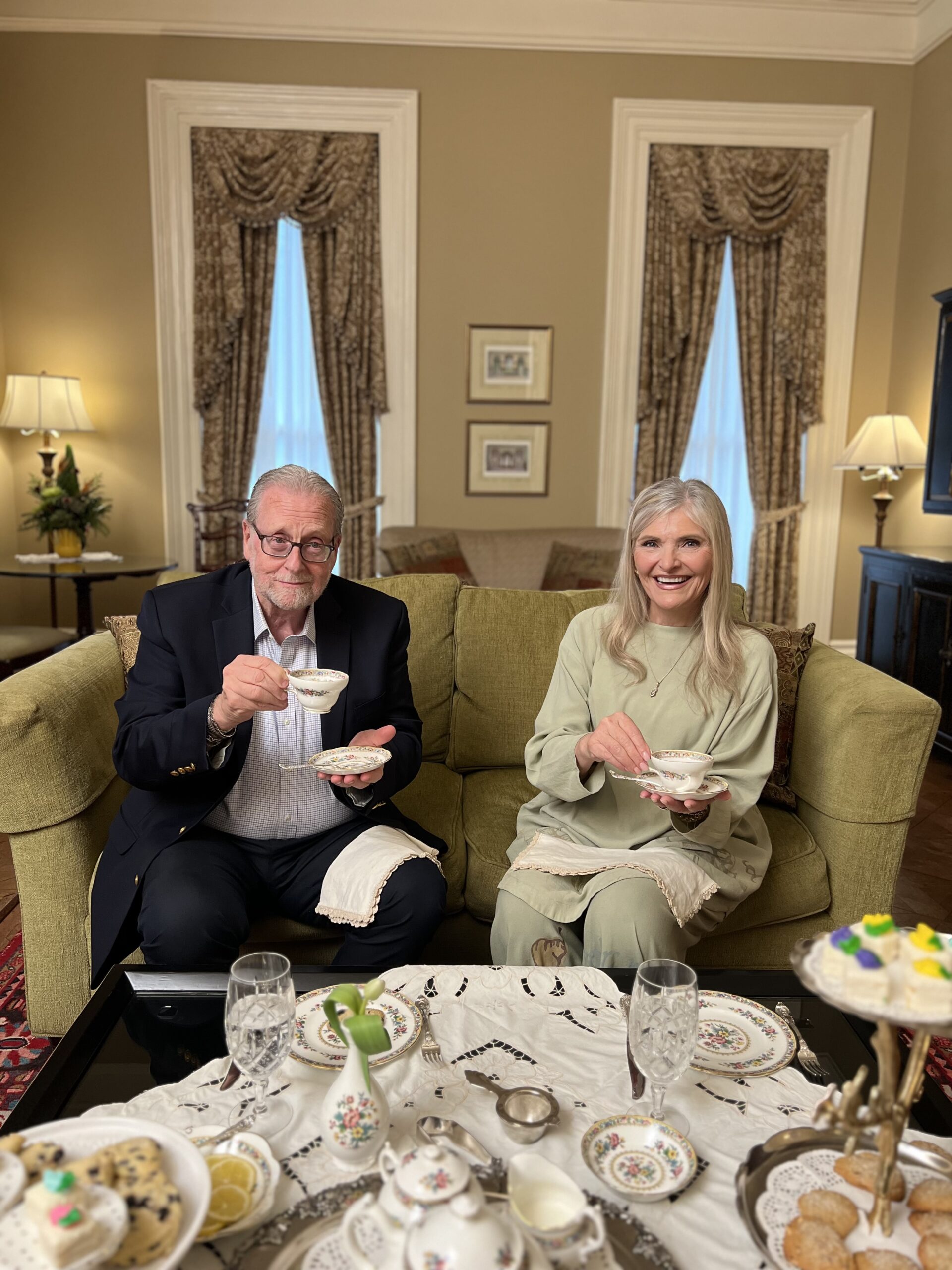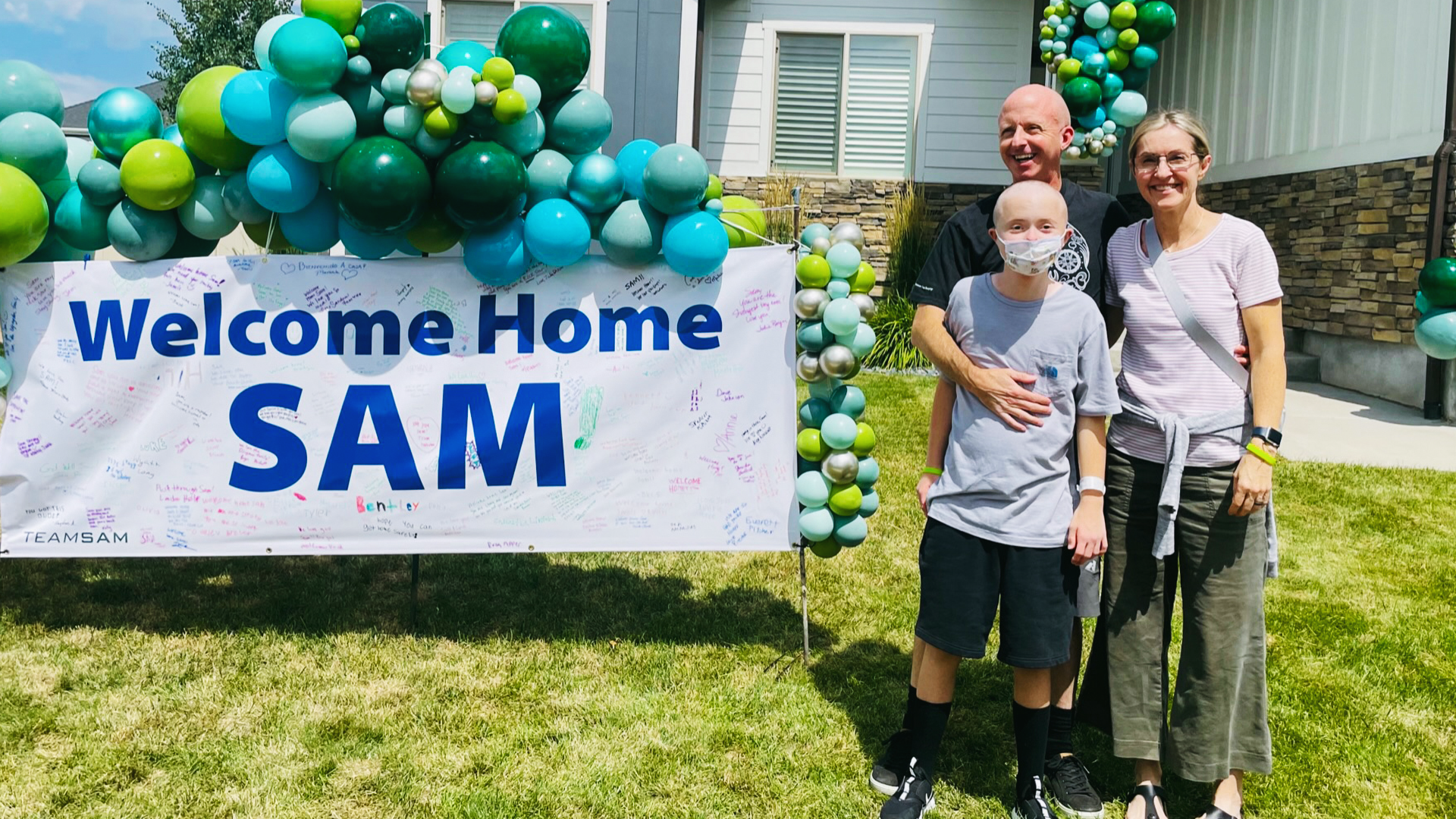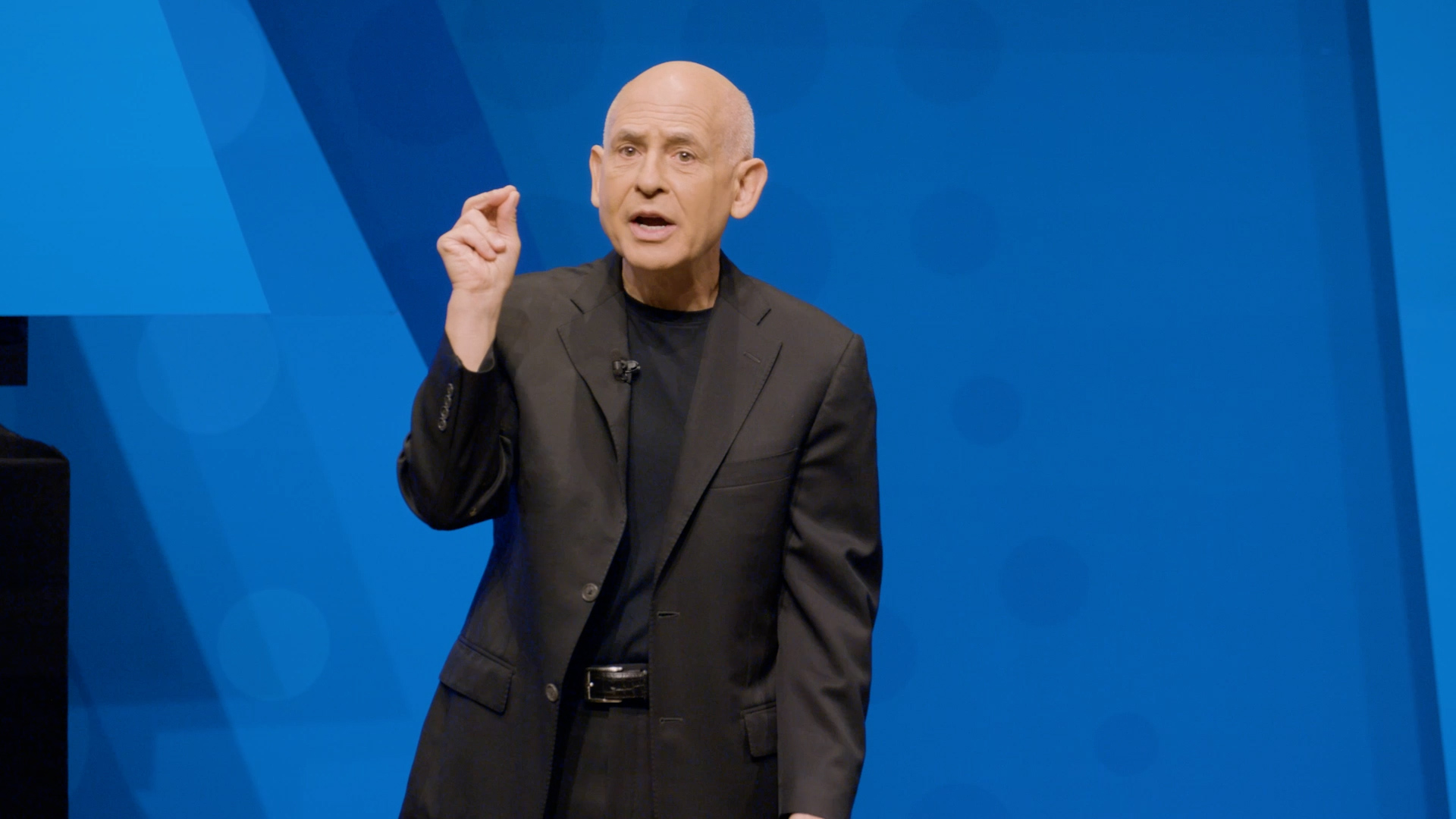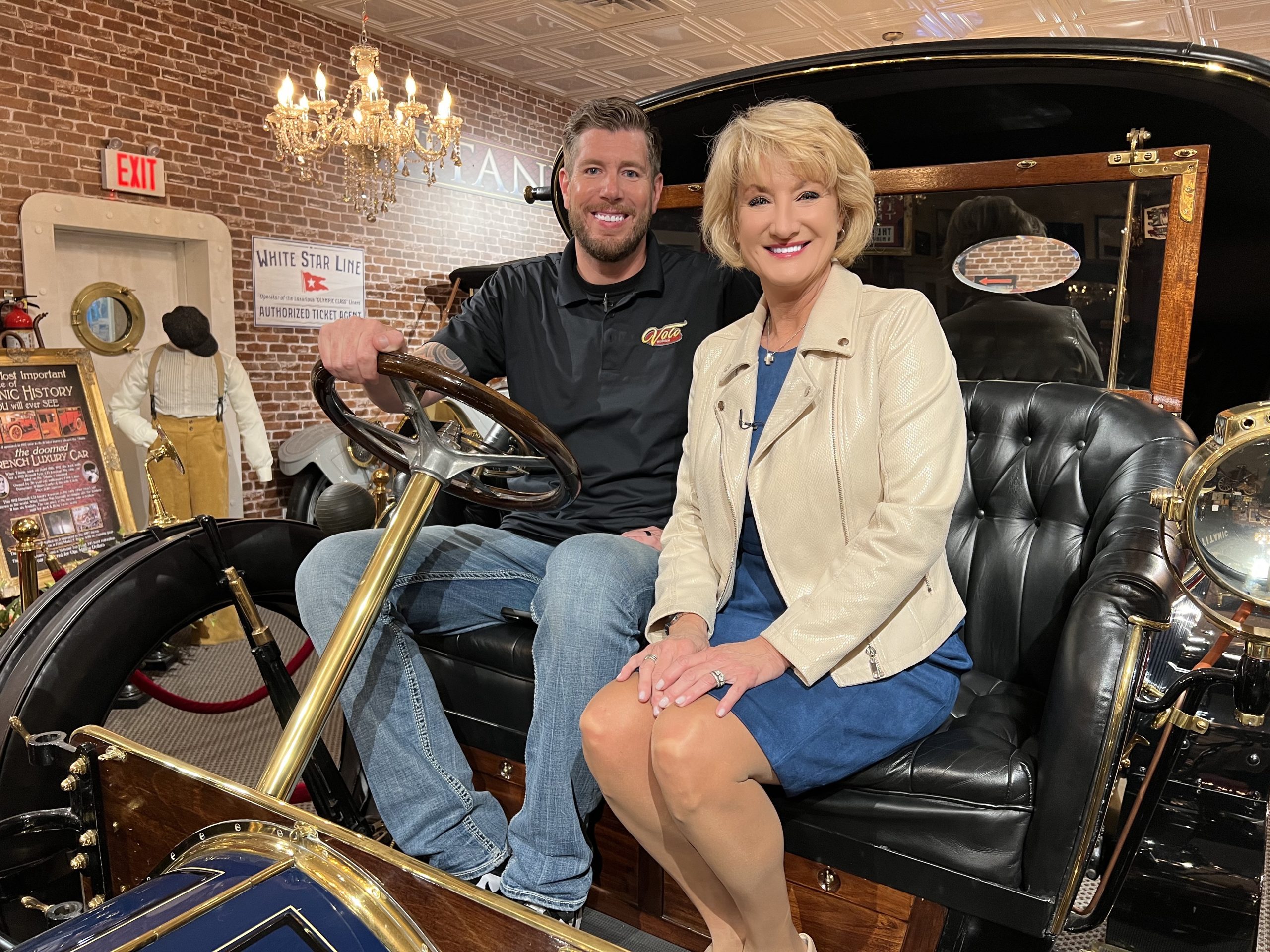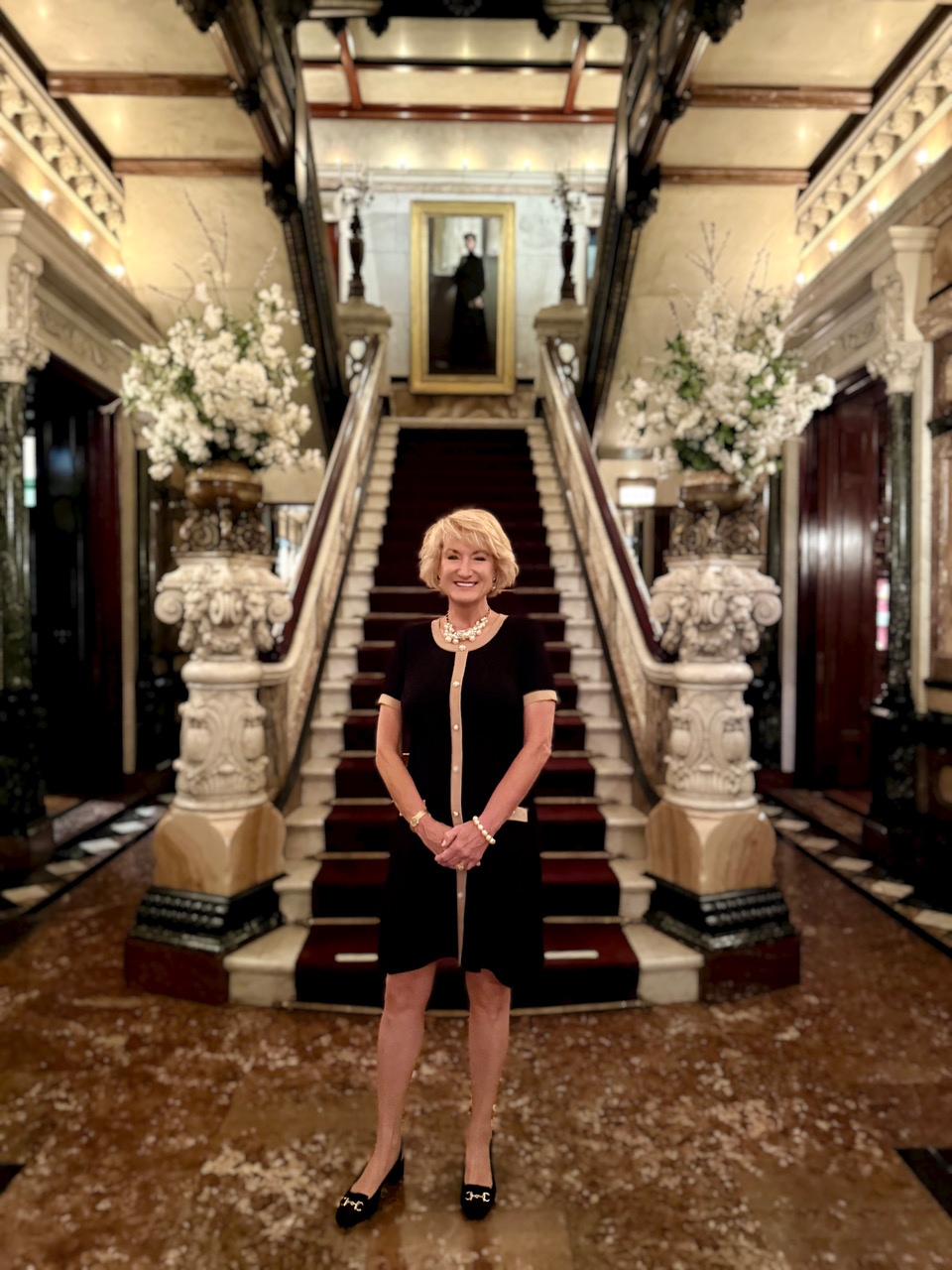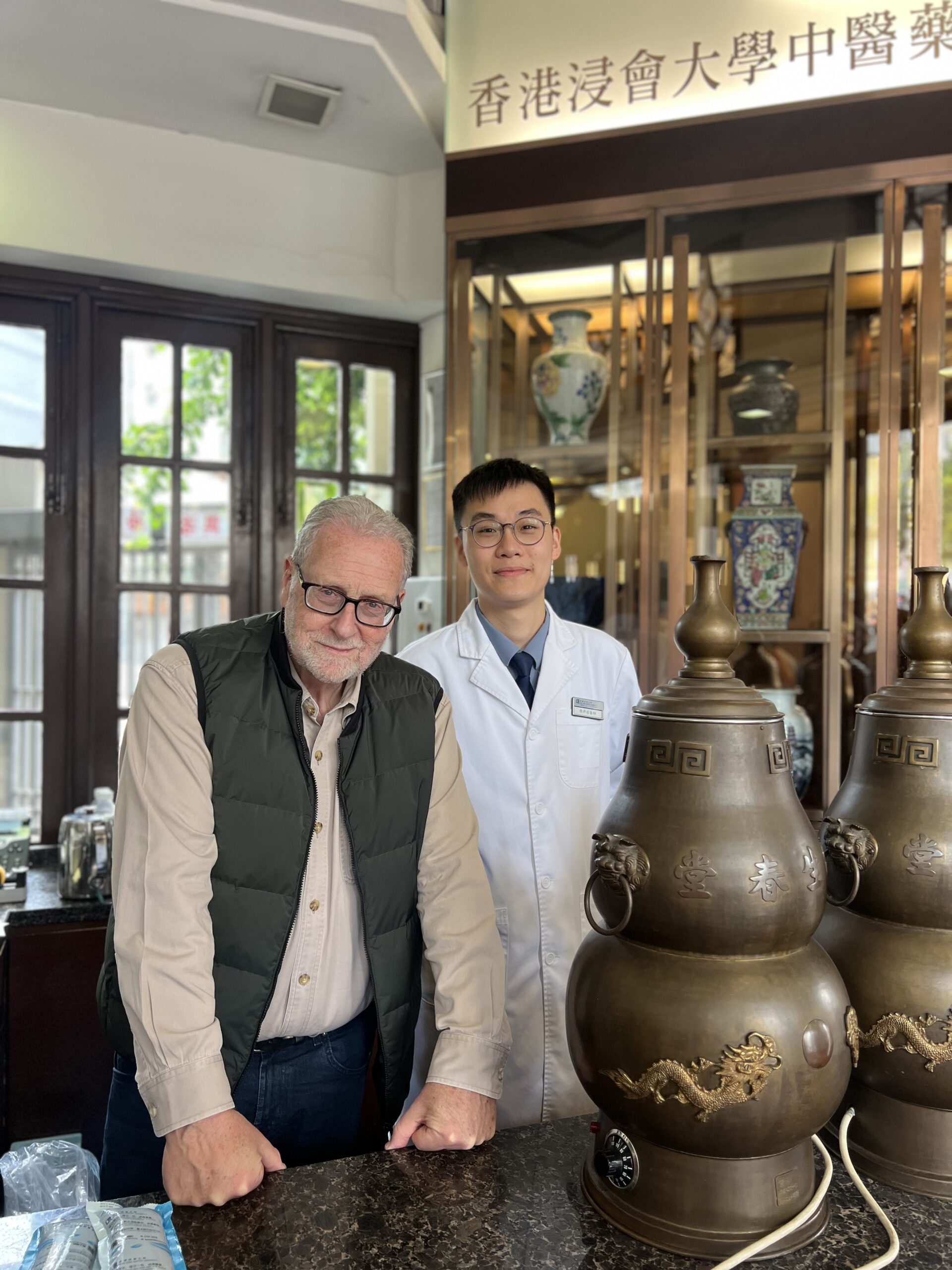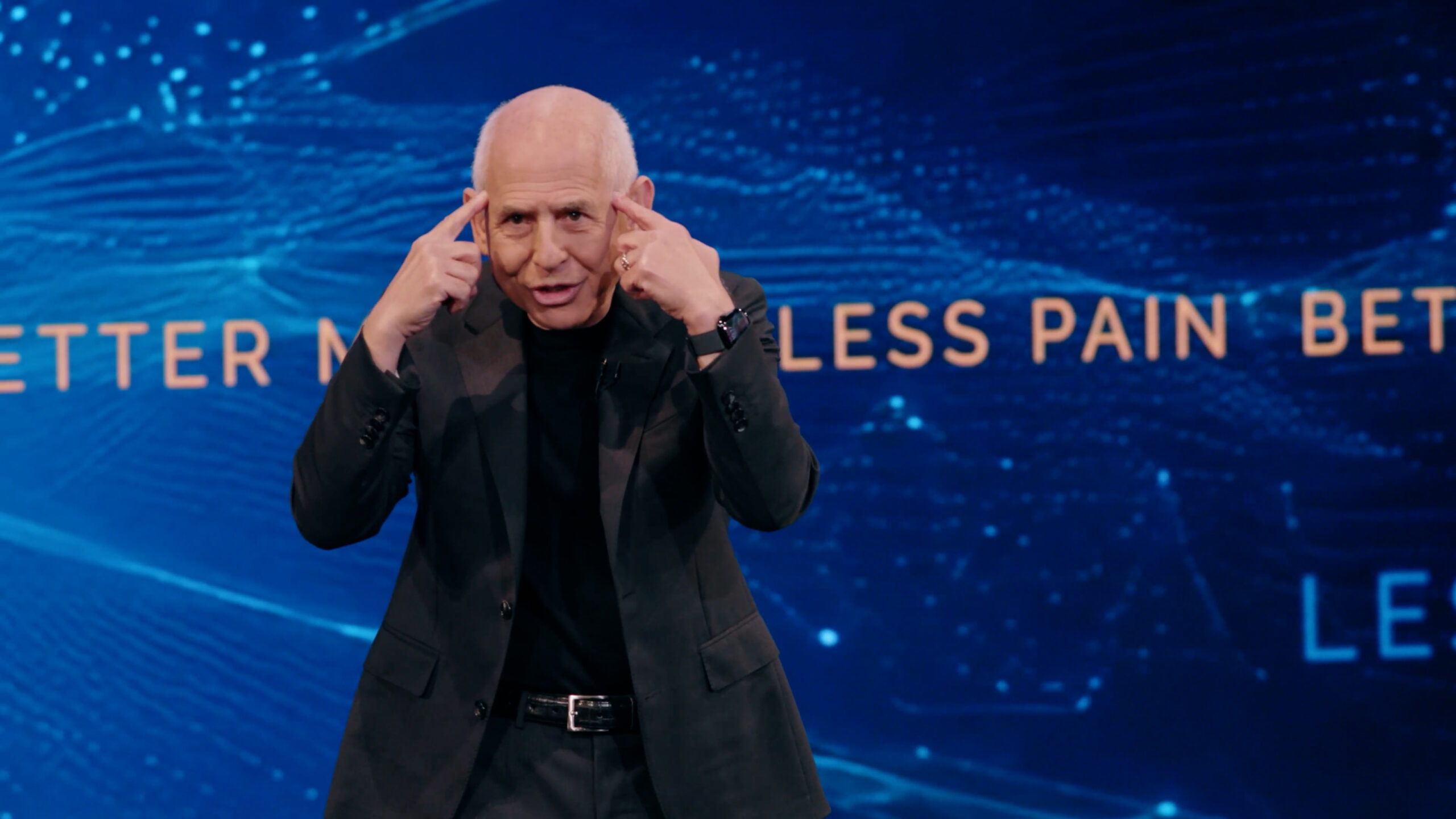
Medical Stories 700’s

With four Emmy awards and eight nominations, Medical Stories is a popular docuseries on public television that centers on the courage and strength of families facing the challenge of illness.
Program Images
















































VIEW ALL PROGRAM IMAGES
Promo Videos
Series Info
With four Emmy awards and eight nominations, Medical Stories is a popular docuseries on public television that centers on the courage and strength of families facing the challenge of illness. With the collaboration and commentary of renowned medical experts from prestigious clinical and research institutions, Medical Stories seeks to educate with the certainty of accurate and non-controversial medical information, that can help change, or even save someone’s life.
Inventi Media Group
Rights: 5/1/25 to 5/31/2027, (Live Linear Streaming available)
12×30
High Definition
Episode 701: Faith Over Fear
When she was just 17 years old, Salathiel had to be rushed to the ER because her feet had swollen to the point where she couldn’t walk. Soon after, she was diagnosed with lupus, an autoimmune disease that the Lupus Foundation of America says can cause issues ranging from joint pain and rashes to inflammation in the organs.
Now 39, Salathiel found a new purpose in life by educating and helping others with lupus. In Savannah, Georgia, she opens up to Medical Stories about her near-death experience with the disease as well as how she’s using her story to inspire others facing the same challenges.
Meanwhile, in Plant City, Florida, Vietnam veteran Michael became concerned about his health when his brothers tested positive for a hereditary disorder. Called alpha-1 antitrypsin deficiency (AATD), it often results in lung or liver disease, according to the National Organization for Rare Disorders.
After testing positive for AATD, Michael did not have much hope for himself, especially when his brothers died from complications with the condition. But as he tells Medical Stories, thanks to his doctors and his family, including his wife, Karon, the 77-year-old found the strength he needed to fight back and earn a “new lease on life.”
This episode also features in-depth commentary from renowned experts Angela R. Crowley, MD, Rheumatology Specialist, Hinsdale Orthopaedics, a Division of Illinois Bone & Joint Institute; Mark L. Brantly, MD, Professor of Medicine, University of Florida; and Ginger Clark, MD, MS, Professor of Medicine, University of Florida Gastroenterology Division.
Episode 702: Little Warriors
Pittsburgh residents Kayla and Eric were enjoying their time as new parents to their son, Easton, until his health took a turn for the worse. After a series of tests, they finally learned he had HLH, a rare immune deficiency disorder.
Kayla and Eric walk us through the challenges of raising a child with a rare disease, from the difficulty of getting a diagnosis to the day Easton received a life-saving bone marrow transplant.
Meanwhile, 2-year-old Carson appeared to be a healthy child until one night, his parents, Tehani and Ramon, noticed he had a nasty cough and took him to the hospital. They were shocked to learn he had neuroblastoma, which the American Cancer Society identifies as one of the most common cancers in infants.
From their home in Philadelphia, Tehani and Ramon share how Carson stayed upbeat even during some rough side effects from his treatment, and how his older brother, Ammon, provided exactly the type of emotional boost the family needed.
This episode also features in-depth commentary from renowned experts Michael Jordan, MD, Professor of Pediatrics, Cincinnati Children’s Hospital, and Ro Bagatell, MD, Division of Oncology, Children’s Hospital of Philadelphia.
Episode 703: Silent Attack
The National Organization for Rare Disorders identifies CIDP (short for “chronic inflammatory demyelinating polyneuropathy”) as a rare disease that affects the body’s nervous system, with symptoms such as impaired motor skills and even paralysis.
In this episode, Medical Stories focuses on two individuals with CIDP.
In Chapel Hill, North Carolina, 63-year-old Corbin relates how the illness slowly took away his body control and his independence, even testing his faith as a religious man. But he managed to find the resolve to push through the worst symptoms of the disease.
And in Rowland Heights, California, 39-year-old Cindy explains how at first CIDP shattered her dream of becoming a social worker, before she learned how she could help others in a different way.
This episode also features in-depth commentary from renowned expert Jeffrey Allen, MD, Professor of Neurology, University of Minnesota.
Episode 704: Mending Miracles
Tanika, a 46-year-old network journalist in Atlanta, Georgia, was looking forward to starting a family after getting married.
But her hope of becoming a mother faced an obstacle because she has noncancerous tumors in her uterus called uterine fibroids. According to the University of Michigan, African-American women are two to three times more likely than white women to have recurring fibroids or suffer from complications.
In this episode, Tanika explains how she handled the struggle of living with uterine fibroids and how she refused to let these issues take away her dream of motherhood.
Later, Medical Stories travels to Brighton, Michigan, where another couple are trying to overcome a medical condition that’s preventing them from having children.
Despite growing up with unusual symptoms, Sara wasn’t diagnosed with endometriosis until she was in her thirties. It’s a condition caused by tissue similar to the lining of the uterus growing outside the uterus. And Johns Hopkins Medicine claims up to half of all cases of infertility can be linked to the disease.
Sara, now 39, and her husband, Brian, open up about what it was like dealing with a mysterious disease throughout their relationship, before revealing how their story wound up with an unexpected happy ending.
This episode also features in-depth commentary from renowned experts Ayman Al-Hendy, MD, PhD, FRCSC, FACOG, CCRP, Professor (Tenure) Department of Obstetrics and Gynecology, University of Chicago Medicine, and Sawsan As-Sanie, MD, MPH, Associate Professor of Obstetrics and Gynecology, University of Michigan.
Episode 705: La Vida Strong
Although anyone can be affected by multiple sclerosis (MS), a chronic disease that affects the central nervous system, the National Multiple Sclerosis Society claims Hispanics often face more severe symptoms at an earlier age than others with the disorder.
Medical Stories sat down with two Hispanic women who were diagnosed with MS.
Nancy is a mother of four in Joshua, Texas, who feared her condition meant she would face the same fate as her brother, who died of the disease.
And in Fontana, California, Sandra explains how growing up in a Hispanic household meant their families downplayed diseases like MS, leading to a delayed diagnosis.
But both women are also quick to emphasize how they were able to lean on their loved ones during their crisis.
This episode also features in-depth commentary from renowned experts Horacio Chiong-Rivero, MD, PhD, Neurologist in Multiple Sclerosis and Neuroimmunology, JPS Health Network, and Flavia Nelson, MD, Chief, Central Nervous System Autoimmune Disorders Division, Director, Multiple Sclerosis Center of Excellence, University of Miami.
Episode 706: Breaking The Myths
Even though it affects millions of women, there are many widespread myths about menopause, according to the Mayo Clinic. Contrary to popular belief, it can affect women under the age of 50, and its symptoms often include more than just hot flashes, such as sleep problems, weight gain, and memory problems.
To help dispel those myths, Medical Stories hears from two inspiring women who underwent different ordeals when they began to experience menopause.
First, New York resident Susan, a 58-year-old lifelong athlete, shares how she was caught off-guard by the changes in her body, forcing her to adjust her lifestyle to adapt.
Then, in Old Lyme, Connecticut, 55-year-old Jennifer speaks about how she received menopause hormone therapy, and in the process, learned how much false information there is about the treatment.
This episode also features in-depth commentary from renowned experts Mary Jane Minkin, MD, Clinical Professor of Obstetrics, Gynecology, and Reproductive Sciences, Yale University School of Medicine, and Sharon Malone, MD, Chief Medical Advisor, Alloy Women’s Health.
Episode 707: Passion Over Cancer
Anthony, an architect in New Haven, Connecticut, had been dealing with stomach issues for years, before he finally learned he had neuroendocrine tumors (NETs), a rare group of cancers.
Because Anthony’s disease had progressed to Stage 4 by the time he was diagnosed, his family, including his wife, Amy, feared the worst. But Anthony, now 60, tells Medical Stories how he dealt with the intense treatment regimen and managed to turn his ordeal into a “profoundly rewarding experience.”
Later, we meet Mary Pat, an assistant at the University of Chicago, who dreaded what would come next after she learned she had head and neck cancer. The disease has the second-highest suicide rate of all individuals with cancer, according to The Journal of the American Medical Association.
But with the help of her husband and coworkers, Mary Pat learned of procedures that would give her the chance to beat her cancer and have a normal life once again.
This episode also features in-depth commentary from renowned experts Pamela Kunz, MD, Medical Oncologist, Yale Cancer Center and Smilow Cancer Hospital, and Ari Rosenberg, MD, Assistant Professor of Medicine and Oncologist, University of Chicago Medicine.
Episode 708: Brave Beginnings
Adenosine deaminase (ADA) deficiency is an ultra-rare disease that compromises an individual’s immune system. According to the National Library of Medicine, about 80% of individuals with this illness also have severe combined immunodeficiency (SCID), which further weakens their ability to fight infections.
While she was pregnant with twin girls, Shakira discovered she and her husband, Sam, were carriers of ADA-SCID. Furthermore, one of their unborn girls, who they named Maya, had already contracted the disease.
In Watchung, New Jersey, Shakira and Sam share with Medical Stories their ordeal of raising Maya, who had to be isolated after she was born. But despite this enormous burden, they find a way to help Maya overcome her weakened immune system.
Later, Medical Stories heads to Mountainburg, Arkansas, where Amanda and her husband, Dustin, share the story of their fourth child, Daxtin. Daxtin was born with juvenile myelomonocytic leukemia (JMML), a rare type of leukemia, with only 1 to 2 cases per million people, according to the National Cancer Society.
Daxtin’s family and doctors had to race to find the right treatment while encountering numerous obstacles, including the COVID-19 shutdown and a last-minute medical complication. By the end of his story, it becomes clear why Daxtin’s doctors refer to him as the “miracle baby.”
This episode also features in-depth commentary from renowned experts Morna J. Dorsey, MD, MS, Director, Pediatric Immunology Center, University of California, San Francisco, and Elliot Stieglitz, MD, Associate Professor, William Fries II Endowed Chair of Pediatric Oncology, UCSF Benioff Children’s Hospital.
Episode 709: Disruptive Blood
Sean was born with severe hemophilia A in the eighties, at the height of the HIV/AIDS crisis. For him, growing up with a bleeding disorder that prevented his blood from clotting meant he couldn’t participate in many of the outdoor activities his friends were doing.
In Escondido, California, Medical Stories catches up with Sean, now a 38-year-old teacher and father of three girls, one of which inherited the disorder. But Sean explains how advances in medicine have instilled hope for a better future, while also highlighting the need for improved treatments and care for the hemophilia community.
Meanwhile, Chandon, a husband and father of two, was living a healthy life in Long Beach, California, where he surfed almost twice a week.
But despite his fit lifestyle, one day he experienced a strange pain in his leg that took him to the ER. There, the doctors told him that not only had he just had a stroke, but that it wasn’t his first one.
After this shocking news, Chandon, now 60, embarks on a mission to work on his health and get the treatment he needs, with the help of his wife, Janel.
This episode also features in-depth commentary from renowned experts Annette von Drygalski, MD, Professor of Clinical Medicine and Director of the Center for Bleeding and Clotting Disorders, UCSD, and Jeffrey Saver, MD, Professor and SA Vice Chair of Neurology at UCLA, and Director of the UCLA Comprehensive Stroke and Vascular Neurology Program.
Episode 710: Pillars of Strength
When she was a child, Shaina had dreams of becoming a stand-up comic as an adult. But she had to put those dreams on hold when she was diagnosed with Gaucher disease, a rare genetic disorder that can cause bone pain, enlarged organs, and bleeding problems, according to the Cleveland Clinic.
At her home in Miami, Florida, the 34-year-old mother of two explains how despite her condition, she’s managed to channel her pain into an opportunity to make people laugh.
Meanwhile, in Sanford, Florida, Kat was experiencing strange symptoms like hair loss and bloating. At first, she figured that it was due to the stress of her job as a professional soccer coach and scout. So it came as a shock when she learned she had ovarian cancer. Even worse, doctors only gave her up to five years to live.
However, Kat had a unique type of cancer that was folate receptor alpha-positive (FRα-positive), meaning she had other types of treatments available to her. And in terms of support, she was lucky to have her wife, Kimberly, who acted as her rock through the entire ordeal.
This episode also features in-depth commentary from renowned experts Neal J. Weinreb, MD, Voluntary Associate Professor of Human Genetics, University of Miami, and Nathalie Dauphin McKenzie, MD, Gynecologic Oncologist, AdventHealth Cancer Institute.
Episode 711: Rare Rising
Congenital athymia is a rare condition in which a child is born without a thymus, which produces cells needed to fight infection. The Immune Deficiency Foundation states most children with the condition die by age 2 or 3 with only supportive care.
Just days after Katie and JD had their son, Charlie, they were forced to bring him back to a hospital after test results showed he had no immune system. Not long after, he was diagnosed with congenital athymia, meaning he was born without a thymus, which produces cells needed to fight infection.
Katie and JD feared their son’s time was limited. But at their home in San Diego, they recount how Charlie not only overcame his disease but also the ordeal of being isolated from the world for over four years.
Later, Medical Stories travels to New Berlin, Wisconsin, where Luke has been wrestling with his own immune deficiency. Luke’s condition is a variant of WHIM syndrome, an extremely rare disorder that makes his body much more susceptible to infections.
As a father of three, Luke shows how the disorder has also affected his family and how they’ve learned to adapt to life living with a rare disease.
This episode also features in-depth commentary from renowned experts Cathleen Collins, MD, PhD, Associate Professor of Pediatrics at Rady Children’s Hospital and UCSD, and Teresa Tarrant, MD, Associate Professor of Medicine, Duke University.
Episode 712: Diagnosis in Disguise
On a scale of 1 to 10, Andrea, a Maryland resident, described her unexplained gastrointestinal pain as a 15.
But despite her symptoms, it took her nearly two years to finally get diagnosed with exocrine pancreatic insufficiency (EPI), a condition in which the pancreas doesn’t produce enough enzymes to help the body properly digest food.
And her journey didn’t end there. Along with her husband Jonathan, Andrea relied on her tenacity to find a treatment that would give her relief from her excruciating pain.
Later, in Amesbury, Massachusetts, Laura has been dealing with extreme abdominal pain since she was 24.
At first, her doctors were stumped, until a family member helped Laura realize she had inherited a rare condition called acute intermittent porphyria (AIP) from her father. The disorder can cause sudden attacks of abdomen pain, fatigue, nausea, and vomiting, according to the Mayo Clinic.
Laura, now 47, opens up to Medical Stories about the pain and uncertainty she experienced while trying to diagnose the rare disease, as well as the solutions she’s using to combat the illness and bring stability back into her life.
This episode also features in-depth commentary from renowned experts Andres Gelrud, MD, Director, Pancreatic Disease Center, Miami Cancer Institute, and Amy Dickey, MD, and Rebecca Karp Leaf, MD, Co-Founders and Co-Directors of Mass General Porphyria Center.
Episode 713: Pieces of the Past
An estimated 6.9 million Americans age 65 and older are living with Alzheimer’s dementia today, according to the National Library of Medicine. But experts fear this number could double to 13.8 million by 2060.
In this episode, Medical Stories hears from two individuals with Alzheimer’s disease, as well as their family members who have become their caretakers.
Jim and J’Ann have been together for over 50 years, but their marriage faced a new challenge when Jim began to show early signs of Alzheimer’s disease. In St. Louis, Missouri, the couple talk about how they’ve started to adjust to the early symptoms of the disease, as well as the emotional toll it’s taken on their relationship.
And in Venice, Illinois, Phillip White Jr. has been taking care of his 82-year-old mother, Bessie, who has been dealing with Alzheimer’s for several years. Along with his father, Phillip explains how they were lucky enough to catch Bessie’s condition early, allowing them to give Bessie the best care possible.
This episode also features in-depth commentary from renowned expert George T. Grossberg, MD, Inaugural Henry & Amelia Nasrallah Endowed Professor, Director of Geriatric Psychiatry, Saint Louis University, and Jared R. Brosch, MD, MSc, Associate Professor of Neurology, Indiana University Health.
Other Shows You May Like



